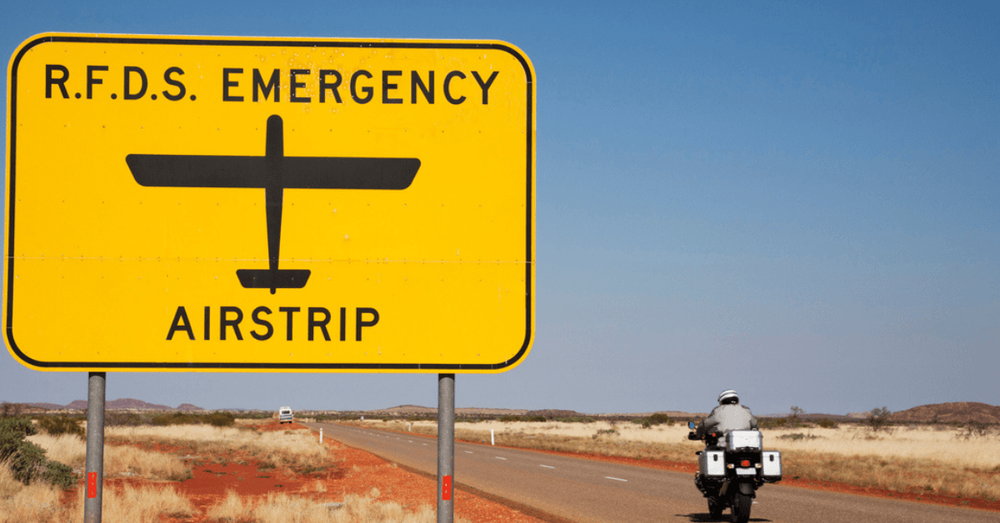What is a Rural Generalist and why does Australia need them?

What is a Rural Generalist?
A Rural Generalist (RG) is a highly skilled general practitioner with advanced training tailored to meet the diverse and unique healthcare needs of rural and remote communities in Australia.
Rural Generalist Medicine delivers comprehensive medical care in rural settings, encompassing a wide range of services:
- Comprehensive primary care for individuals, families, and communities.
- Hospital in-patient and related secondary medical care across various settings.
- Emergency medical services.
- Specialised services in focused areas as needed to maintain essential local health services.
- A population health approach tailored to community needs.
- Collaboration within a multi-professional and multi-disciplinary team to provide a responsive 'system of care' that aligns with community health requirements.
The important role of Rural Generalists
Rural Generalists are pivotal to Australia’s healthcare framework, especially in remote areas. They bridge the significant health service gaps in rural settings by providing a broad spectrum of medical services that are otherwise accessible only in larger, urban hospitals. Their advanced skill set allows them to respond to medical emergencies, manage high-risk pregnancies, perform essential surgeries, and much more, making them indispensable in regions with limited healthcare resources.
Why Australia needs more Rural Generalists
- Healthcare equity: Rural Generalists are key to reducing the healthcare disparity between urban and rural areas in Australia. Their presence ensures that rural populations have timely access to quality medical care.
- Community sustainability: Healthcare is a cornerstone of community sustainability. Rural Generalists contribute significantly to the viability of rural areas, supporting local economies and helping to stem the rural exodus.
- Emergency preparedness: Having a Rural Generalist on the ground can be the difference between life and death. Their ability to perform a variety of procedures can save critical time and improve outcomes in emergency situations.
- Cost-effectiveness: By providing diverse medical services locally, Rural Generalists reduce the need for patients to travel long distances for care, significantly decreasing healthcare costs associated with travel and urban hospital stays.
How to become a Rural Generalist in Australia?
FY26 Australian Salary Guide
Download our free FY26 guide and get the inside scoop on:
The Rural Generalist Pathway is a program designed to meet the unique healthcare needs of rural and remote communities across Australia. It prepares doctors to provide a wide scope of medical care, distinguishing them from traditional general practitioners with its emphasis on a broader range of services tailored to less urban environments.
Rural Generalists undergo specialised training that equips them with the skills necessary for a diverse range of medical scenarios, making them indispensable to their communities. This pathway includes extended training in areas such as emergency care, obstetrics, and anesthetics, which are critical in settings where the nearest hospital may be hours away.
The Rural Generalist Pathway is currently supported by various state programs, including the Queensland Rural Generalist Pathway, NSW Rural Generalist Program, Rural Generalist Pathway WA, and Rural Generalist Program SA. Each of these programs aims to address the shortage of medical professionals in rural areas, offering tailored training and incentives to encourage medical practitioners to work in these communities.
Rural Generalist salaries are competitive and often come with additional benefits to compensate for the challenges of rural medical practice. These roles can include permanent positions or locum jobs, which offer flexibility and variety in employment.
For those interested in pursuing this career, the National Rural Generalist Pathway provides a structured and supported approach to gaining the necessary qualifications and experience. This pathway not only enhances the healthcare landscape of rural Australia but also offers medical professionals a fulfilling career with the opportunity to truly make a difference in the lives of their patients.
Rural Generalists (RGs) are crucial for serving Australia's rural and remote communities. Accredited by the Australian Medical Council (AMC), the Australian College of Rural and Remote Medicine (ACRRM) meticulously sets the professional standards for training and development in this broad field. ACRRM’s Rural Generalist Pathway is a unique four-year program specifically tailored for the rural medical context, starting from day one. This competency-based, skills-focused curriculum is designed by rural doctors to produce safe, confident, and independent RGs. The Fellowship pathway includes three years of Core Generalist Training and a minimum of 12 months of Advanced Specialised Training, where registrars meet rigorous training, education, and assessment requirements. Rural Generalist jobs, including locum roles, are important across Australia, including Queensland (QLD), New South Wales (NSW), Western Australia (WA), and South Australia (SA), where the demand for skilled practitioners continues to grow. For more details on how to embark on this rewarding career, visit the ACRRM website.
Why locum as a Rural Generalist
Locuming offers Rural Generalists (RGs) a unique opportunity to experience varied healthcare settings across different regions. This flexibility allows RGs to choose assignments that match their personal and professional goals while exposing them to diverse medical cases and environments. For those who enjoy variety and challenge in their medical practice, locuming can provide a vibrant and enriching career path. Due to the remote and urgent nature of many of the jobs there is also an opportunity to earn more money.
- Impact on rural communities
Locum RGs play an important role in sustaining healthcare delivery in rural and remote areas, especially in communities that struggle to attract permanent medical practitioners. By filling temporary roles, they ensure that these communities continue to have access to essential medical services. This helps maintain continuity of care and prevents the healthcare system in these areas from collapsing due to staff shortages.
- Work with the famed Royal Flying Doctors Service
The RFDS Primary Health Care Service is delivered by a team of RGs, ACRRM and RACGP Registrars, nurses, midwives, and allied health professionals. Rural Generalists at RFDS join a team that combines experienced RGs alongside Retrieval Consultants, together providing primary care, emergency aeromedical care and telemedicine .
- Professional development
Working as a locum RG can enhance professional development. The exposure to different clinical settings and health challenges broadens their expertise and sharpens their skills. Each new location brings unique learning opportunities, helping RGs to become more adaptable and resourceful clinicians.
- Work-life balance
One of the most appealing aspects of locuming for many RGs is the control it offers over their work schedules. This flexibility allows them to balance professional commitments with personal life, such as spending time with family, pursuing hobbies, or travelling. For RGs who value work-life balance, locuming can provide a manageable and satisfying way to structure their careers.
Locuming as a Rural Generalist serves as important support to under-resourced areas and offers a fulfilling career path characterised by flexibility, continuous learning, and meaningful community impact. It represents an intersection of professional growth and personal satisfaction, making it an attractive option for many doctors in rural general practice. Search rural and remote jobs.
